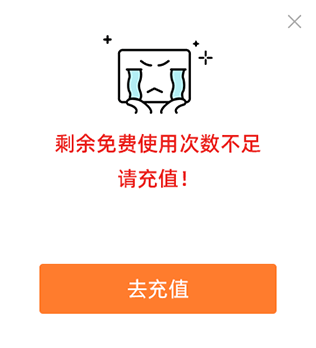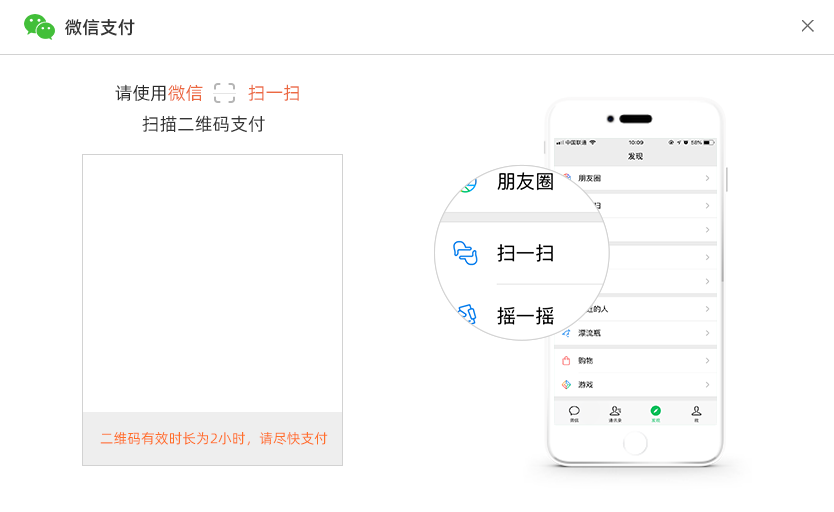Taxpayers' business is increasingly diversified, and other business activities that fall within the scope of value-added tax payable will also occur outside the main business scope (beyond the business scope specified in the industrial and commercial business license). In practice, when enterprises issue invoices in business activities outside the scope of business, they often have a question about whether "invoicing beyond the scope of business" is illegal, or whether it is suspected of falsely issuing special VAT invoices.

1、 "Invoice Usage Scope" is different from "Business Scope" of the enterprise
Item (4) of the first paragraph of Article 24 of the Measures for Invoice Management stipulates that any unit or individual shall use invoices in accordance with the regulations on invoice management and shall not expand the scope of invoice use. Article 35 Where the provisions of Item (5) of the first paragraph of Article 35, in violation of the provisions of these Measures, expand the scope of use of invoices, the tax authorities shall order correction, and may impose a fine of less than 10000 yuan, and confiscate any illegal income. The key to distinguish whether enterprises can issue invoices beyond the scope is to clarify the two concepts of "invoice use scope" and "business scope". "Scope of invoice use" refers to the scope of an invoice that can be issued. For example, according to the No. 1 announcement of Sichuan Provincial Office of SAT in 2012, "quota award-winning invoices are applicable to individual businesses and other individuals who are under the jurisdiction of Sichuan Provincial State Tax System and implement the method of regular quota collection when selling goods or providing processing, repair and replacement services." "Scope of invoice use" It belongs to the exclusive concept of tax; The "business scope" of an enterprise is the business scope of the enterprise engaged in business activities and belongs to the exclusive concept of enterprise registration. General enterprise tax accountants will equate the "scope of use of invoices" with the "scope of business" of enterprises in their inherent concepts, so that there is a deviation in the identification of the attribute of "invoicing beyond the scope of business", resulting in errors in the application of law.
2、 It is not illegal to issue invoices beyond the "business scope"
(1) Answers to this question at the level of the State Administration of Taxation
The Measures for the Administration of Invoices and its implementation rules do not explicitly prohibit taxpayers from "issuing invoices beyond the scope of business". On the contrary, Article 26 of the Detailed Rules stipulates that "units and individuals who fill in and issue invoices must issue invoices when business operations occur and business income is recognized. Invoices are not allowed to be issued when no business operations occur." It clarifies that taxpayers must issue invoices when confirming business income, regardless of whether the business operations occur "beyond the business scope". According to the legal spirit of "freedom without prohibition", it is not illegal for enterprises to "issue invoices beyond their business scope". On January 17, 2011, the Tax Service Department of the State Administration of Taxation publicly answered questions on the official website of the State Administration of Taxation about "whether it is possible to issue special VAT invoices for businesses not within the scope of business?".
(2) Answers to this question at the level of local tax bureaus
According to the relevant provisions of the Invoice Management Measures, the core meaning of invoice issuance is to conform to the real business situation, that is, if you actually provide taxable behavior, you should truthfully invoice and pay taxes. The scope of the business license does not constitute an obstacle to the essential issue of whether to invoice or pay taxes. For this reason, in addition to the level of the State Administration of Taxation, local tax authorities also have some answers on the implementation criteria, as follows:
Hubei: Can taxpayers issue invoices for businesses outside the business scope of the business license?
If a taxpayer engages in business outside the business scope of the business license, it may apply to the industrial and commercial department to change the business license scope. If the industrial and commercial department does not change the business license scope, the taxpayer may issue an invoice on its own.
Gansu: General taxpayers will issue VAT invoices by themselves.
There are two types of invoices issued by small-scale taxpayers for business beyond their scope:
(1) Temporary business. It is suggested that after explaining the situation to the competent tax authorities, the corresponding items should be added and invoices should be issued by themselves. For those who need special invoices, it is recommended to take the information required for issuing special VAT invoices to the tax service hall of the competent tax authority, explain the situation to the competent tax authority, and the competent tax authority will handle the issue of special invoices on behalf of them.
(2) Recurring business. It is suggested to contact the industry and commerce department to change the business scope, and then the competent tax authority should increase the corresponding collection items and collection rates, and issue invoices by itself. If a special invoice is required, it is recommended to contact the industrial and commercial department to change the business scope, and then take the information required for issuing special VAT invoices to the tax service hall of the competent tax authority to handle the issue of special invoices.
3、 The wind of invoicing "beyond the business scope"
(1) Invoices with corresponding tax rates may not be issued in the invoicing system
If an enterprise has business beyond its business scope, it can not only apply to the tax authority for issuing invoices on behalf of it, but also issue invoices on its own. However, when enterprises issue invoices on their own, they may encounter that there is no tax rate corresponding to business operations in the invoicing system. For example, for the sale of waste computers, the 13% tax rate cannot be selected in the invoicing system. In this case, the enterprise needs to take the tax control panel to the tax bureau to reissue it, and authorize the entry of relevant information into the anti-counterfeiting tax control equipment. However, whether it can be issued to enterprises may also depend on whether the tax bureau has verified the tax type and product name.
(2) The tax declaration is abnormal after the invoice is issued
At present, all tax rates in the invoicing system can be issued. It is rare for enterprises to issue invoices by themselves without a corresponding tax rate. Enterprises can basically issue invoices normally. However, under normal circumstances, the tax authorities will generally verify the tax categories and collection items for each enterprise, and some local tax authorities may have set up a logical check on the tax return. For example, for a small-scale taxpayer, its business scope is advertising related services. The VAT collection items approved by the tax bureau are advertising services, and no other content has been approved. If there is a cross check check between the collected items and the declaration form, the system may prompt abnormal declaration information when declaring, even if 3% of the sales goods are invoiced. In this case, the taxpayer has issued an invoice for the sale of goods, but the declaration form detects that the taxpayer has no corresponding tax verification, so it is not allowed to fill in the form. In this case, the enterprise needs to go to the tax bureau to verify the relevant tax categories and collection items.
(3) Risk of tax inspection
Although there is no explicit provision prohibiting the issuance of business invoices beyond the scope of business, will the issuance of business invoices bring tax risks to enterprises? Will it attract the attention of the tax bureau and bring unnecessary tax inspection to enterprises? After the launch of Golden Tax Phase III, the issuance of VAT invoices is more transparent and verifiable. Invoicing beyond the scope of business still has certain tax risks. The current invoicing system needs to select the commodity name, tax number, etc. according to the invoicing content. In the invoice, both the buyer and seller as well as the commodity name are clear and accurate. Therefore, when the invoicing content is quite different from the main business of the enterprise, it is easy to attract the attention of the tax bureau. Therefore, in case of "business beyond the scope of business" and VAT invoice beyond the scope of business must be issued, please be sure to keep relevant tax evidence, such as purchase and sales contracts, bills, etc., to meet the inspection of the tax department.
(4) False tax risk
Article 22 of the Invoice Management Measures stipulates that "no unit or individual shall make false invoices as follows: (1) make invoices for others or himself that are inconsistent with the actual business conditions; (2) ask others to make invoices for him that are inconsistent with the actual business conditions; (3) introduce others to make invoices that are inconsistent with the actual business conditions." Therefore, whether taxpayers "issue invoices beyond their business scope" or not, the issuance of invoices must be consistent with the actual business situation. In combination with the provisions of Article 26 of the Detailed Rules for the Implementation of the Invoice Management Measures that "no invoice shall be issued without any business operation", if the invoice is issued for fictitious business operation, or the invoice issued is inconsistent with the actual business operation, including the date of issue, the names of both buyers and sellers, the name of goods and services, the amount and other face information is inconsistent with the actual business operation, Even if the goods and services in the invoice are within the "business scope", it will be suspected of making false invoices, which will bring risks to the invoicer and the invoicee.
The above is just "false" in the administrative law. Whether it is suspected of criminal responsibility still needs to be analyzed in combination with Article 205 of the Criminal Law. According to the provisions of Article 205 of the Criminal Law, the constitutive requirements of false VAT are:
(1) Main elements: the main body of this crime is general, including units and individuals;
(2) Subjective elements: the subjective aspect must be intentional, and the "falsification" in the definition of the crime of falsifying special VAT invoices is expressed as: the act of not truthfully issuing special VAT invoices according to the actual situation.;
(3) Object elements: The object of this crime is China's tax collection and management system, specifically the VAT special invoice management system; (4) Objective requirements: Objectively, it is shown that the special VAT invoice and other invoices that can be used to defraud export tax rebates and offset taxes are issued without sales of goods or are not truthfully issued according to the actual situation. Formally, there is no loss of national taxes.
When an enterprise "issues invoices beyond its business scope", as long as the following requirements are met, it will not constitute a false VAT invoice:
(1) The enterprise has no intention of "false opening";
(2) There is a real transaction relationship between enterprises, and the invoice quantity and amount are consistent with the contract;
(3) The state tax has not suffered any loss due to this act.
For more information about the company's business scope, please pay attention to the second brother











